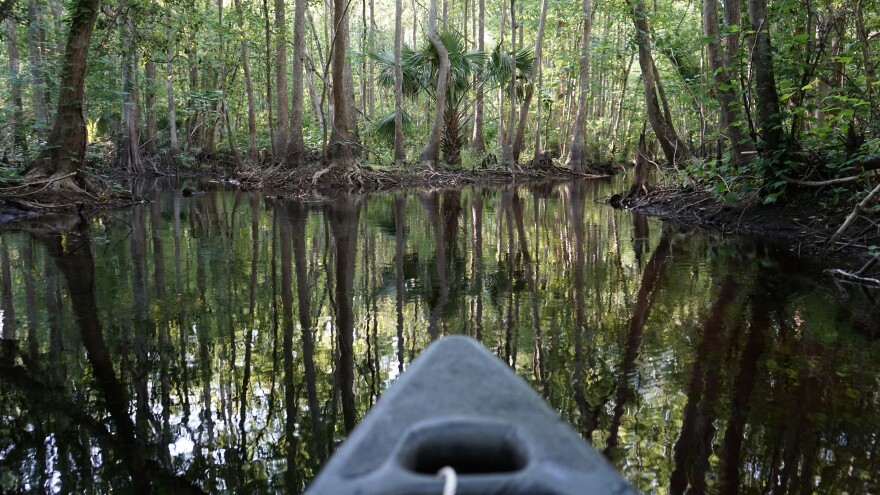Gov. Ron DeSantis and the Florida Cabinet on Tuesday approved $17.8 million in land-conservation deals that include protecting two properties that are part of an envisioned wildlife corridor stretching from the Keys to the Panhandle.
With support growing for the corridor, which is expected to cost billions of dollars and take decades to complete, DeSantis and the Cabinet approved two conservation easements in Osceola and Marion counties linked to the plan. Conservation easements shield property from development, but allow activities such as ranching to continue.
The state will spend $1.89 million to keep the 287-acre Collins Ranch in Osceola County from future development and $3 million for a similar deal involving 135 acres along the Rainbow River in Marion County. Ranching operations will continue on both.
The deals will help carry out the 2021 Florida Wildlife Corridor Act, which calls for pumping $300 million a year into an effort to connect 18 million acres of land.
About 8 million of those acres need to be secured, with a goal of 900,000 acres added by the end of this decade.
Florida Wildlife Corridor Foundation Chief Executive Officer Mallory Dimmitt said “consistent funding” is the key to the corridor’s success.
“While much of the land in the corridor has been protected, these critical linkages remain, and preserving them is getting more expensive every day,” Dimmitt told the House Agriculture & Natural Resources Appropriations Subcommittee on Tuesday before the Cabinet meeting.
Subcommittee Chairman Thad Altman, R-Indialantic, estimated the corridor could require $5 billion to $6 billion to complete, and lawmakers will need to revamp regulations to speed acquisitions.
“That’s going to be a big challenge for us, raising the revenue, enough to make it happen quick. We’re in the two-minute drill here,” Altman said. “And then creating a legal structure. ... We need a lot of help from the private sector as well, from lobbyists, from lawyers, from law firms and from landowners.”
An assessment of Florida’s conservation lands released Jan. 6 by the Legislature’s Office of Economic & Demographic Research said $33.37 million had been spent as of Dec. 30 from the $300 million appropriated in the 2021-2022 fiscal year. The money came from federal stimulus dollars.
DeSantis and the Cabinet --- Attorney General Ashley Moody, Chief Financial Officer Jimmy Patronis and Agriculture Commissioner Wilton Simpson --- also approved a purchase Tuesday of land considered adjacent to the potential path of the corridor.
That property involves 2,529 acres of ranch land in northwest Okeechobee County that touches land in the corridor, Dimmitt said. With an $8.22 million price tag, of which $2.95 million would be covered by the U.S. Air Force, the land is part of a buffer around the Avon Park Air Force Range.
Senate President Kathleen Passidomo, R-Naples, has touted the planned wildlife corridor and said she would like to see bike and walking trails winding through farming communities and wildlife areas from Naples to Orlando.
While Passidomo has projected the work to take a couple of decades to complete, she described the corridor as “our Central Park.”
DeSantis last week included continued funding for the corridor as part of a four-year $3.5 billion request for environmental projects that focuses heavily on the Everglades and water-quality problems.
When asked Tuesday about his goals for the next four years, Simpson pointed to “making sure we stay fiscally responsible in Florida and working with the Legislature on the wildlife corridor.”
Other deals approved Tuesday included two Florida Forever land acquisitions that combined to cost $4.65 million for just over 208 acres in Nassau and Charlotte counties.



